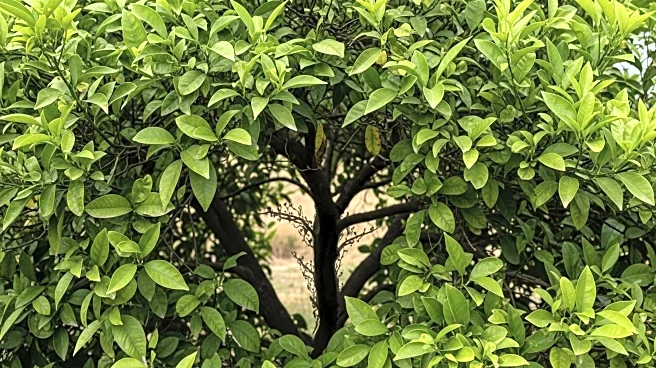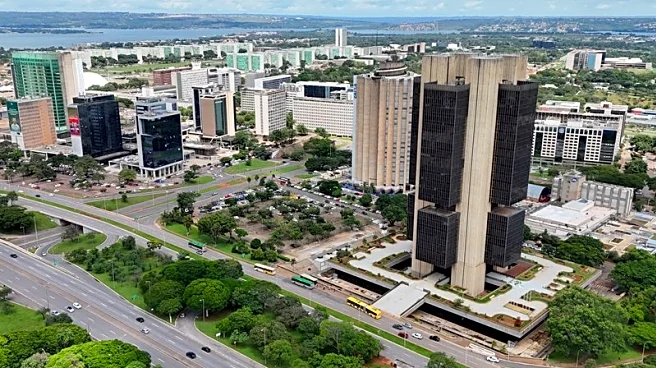What's Happening?
Bacterial greening disease, transmitted by the Asian citrus psyllid, has infected nearly 48% of Brazil's citrus belt, according to Fundecitrus, an industry-funded research group. This marks the eighth consecutive year of increased infections in Brazil, the world's largest orange producer and exporter of orange juice. The disease has severely impacted Brazil's orange production, with the 2024/2025 season output estimated at 230.9 million boxes, the smallest in several years. Although recovery was anticipated, the severity of the disease continues to affect the trees. Fundecitrus has revised its forecast for the 2025/2026 season, reducing it by 2.5% to 306.74 million boxes. In the U.S., Florida has also struggled with citrus greening for over a decade, leading to reduced output and increased dependency on Brazilian imports.
Why It's Important?
The spread of citrus greening disease in Brazil poses significant challenges for the global citrus industry, particularly affecting the U.S. market. Florida's citrus production has been declining due to the disease, increasing reliance on imports from Brazil. This dependency could lead to higher prices and potential shortages in the U.S. market if Brazil's production continues to suffer. The disease causes substantial economic losses, with Brazil experiencing $120 million in annual losses. The impact extends beyond Brazil, as greening has led to the death of millions of trees in Asia and Africa, highlighting the global threat to citrus agriculture.
What's Next?
Efforts to combat citrus greening disease are likely to intensify, with potential advancements in agricultural technology and disease management practices. Stakeholders in the citrus industry, including chemical firms and agricultural researchers, may increase investment in solutions to mitigate the disease's impact. The U.S. may explore alternative sources for citrus imports or invest in domestic production improvements to reduce dependency on Brazilian imports. Additionally, international cooperation in research and development could play a crucial role in addressing the disease's global spread.
Beyond the Headlines
The persistence of citrus greening disease raises ethical and environmental concerns regarding the use of chemical treatments and their impact on ecosystems. The reliance on chemical solutions may lead to debates about sustainable agricultural practices and the long-term health of citrus groves. Furthermore, the economic strain on affected regions could influence policy decisions related to agricultural subsidies and international trade agreements.









